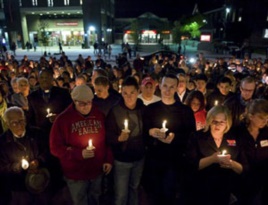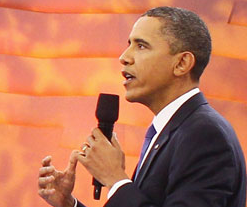Scottish teachers want a legal showdown with Facebook in a bid to make social networking sites accountable for abusive and intimidating comments posted online by school children.
The Education Institute of Scotland (EIS), the country’s biggest teaching union, says it receives between 50 and 60 complaints a year from teachers who have been cyberbullied, harassed and threatened online by their students.
Drew Morrice, EIS Assistant Secretary, said new laws are needed to bring websites more into line with newspapers and broadcasters which are subject to defamation and libel legislation.
He claimed most social networking sites such as Facebook “have published derogatory material and in some cases it does a lot of emotional damage”.
“We need a change in the law to make liability rest with the site holders,” he said.
Teachers have become “fair game” for malicious comment online, Morrice said, adding that there was “no reason for these social media sites to get legal immunity”. At the moment, social media websites and their owners cannot be prosecuted for insults and threats made by users.
The EIS has commissioned new research which will look at the extent of cyberbullying and harassment of teachers and lecturers for the first time.
In new legislation passed under the Criminal Justice and Licensing (Scotland) Act 2010, which will come into force shortly, police are to be given more powers to charge those who have harassed people using emails, text messages and social networking sites. The EIS said it will support any teacher who wishes to pursue a criminal complaint under the new laws.
Schoolteacher Jennifer, who asked for her identity to be withheld, discovered three of her teenage pupils had posted abusive comments on a website, stating they wanted to punch, stab and burn her. Two of the students have now been charged with breach of the peace.
Jennifer told the Sunday Herald: “I know these girls may end up with a criminal record and I have been torn about what to do, but I feel like I have given so much of my effort and energy into these girls and for them to turn around and do what they did is wrong.”
Brian Donnelly, Director of RespectMe, Scotland’s anti-bullying service, said: “We need to educate young people on how to use the internet and to think about what they say online and where the boundaries are.”
Dr Alistair Duff, an information technology lecturer at Edinburgh’s Napier University, described cyberspace as the “Wild West” as it is as yet untamed by law or social boundaries.
A Facebook spokeswoman said: “There is no place for cyberbullying on Facebook and we respond aggressively to reports of potential abuse. Reports involving harassment are prioritised, with most reviewed within 24 hours.”
A Scottish Government spokesperson described cyberbullying as a “deeply frightening crime” and promised that “perpetrators who engage in this criminal activity [will be] brought to justice.
“When implemented, the new stalking offence in the Criminal Justice & Licensing (Scotland) Act 2010 will give victims … greater legal protection, whilst ensuring prosecutors have the full range of powers available to them to bring a conviction.”
‘There were even death threats on there, like how they wanted to stab me and shoot me in the face’
Next month Jennifer, a secondary schoolteacher for more than 15 years, will step into court to see two of her students face criminal charges after posting what she describes as “vile” comments about her online.
Still visibly upset, she describes how the “ordeal”, began: “I was in the classroom with fifth-year pupils and I could sense an atmosphere in the room, girls giggling and whispering every time I had my back turned. I had a hunch something was happening online. I Googled one of the girls’ names and up came a Bebo page which was public. Within a few clicks I was reading a conversation between three of my pupils and there was a photograph of me they had taken without my knowledge in a classroom.
“The comments were pornographic, calling me names and saying what they’d like to do to me, very derogatory about me personally, calling me the ‘c-word’ all the time. I felt like I’d been sexually abused. I felt so violated. There were even death threats on there, like how they wanted to stab me and shoot me in the face.
“My first instinct was to go to the principal. At first he said he couldn’t do anything because this happened outside of school, but eventually the campus police officer spoke to the girls and that’s when one of them apologised. The officer asked me if I wanted to press charges on the two who didn’t apologise and I said ‘yes’.
“When police got involved, one of the girls’ fathers said he agreed with all his daughter had written about me. This is what you’re up against. The stress is ridiculous. I ended up in A&E after I collapsed at school. They told me I’d had a severe anxiety attack. I can’t sleep because I’m worried about the court case. It’s horrendous.
“Teenagers seem to think they can write whatever they like about people and there’s no consequence. I can see this could explode and get worse for teachers if something isn’t done now.
“Parents are often concerned about their child being bullied or targeted by paedophiles but do they check on what they’re writing on Bebo about others?”
The girls face breach of the peace charges.
Bebo did not respond to the Sunday Herald’s request for a comment on this story.

 The boy was convicted of distribution of child pornography and will remain on the sex offender registry until he’s 43 years old.
The boy was convicted of distribution of child pornography and will remain on the sex offender registry until he’s 43 years old.


